We’ve all gawped at Rainer W. Schlegelmilch’s photos of the most audacious 1970s concept cars, more often than not accompanied by suitably attired women and dropped in remote, mountainous locations like spaceships on distant planets.
Daring, barely waist-high, wedge-shaped design studies such as the Alfa Romeo Carabo, Ferrari 512S Modulo and Fiat Abarth 2000 Scorpione, each of which was created to disrupt the established order and familiar design language. Or, perhaps more importantly, put the names of their respective creators, the likes of Pininfarina, Bertone and Italdesign, on the lips of everyone from impressionable teenagers to the bigwigs of major car manufacturers. With regards to the latter, they did a sterling job.

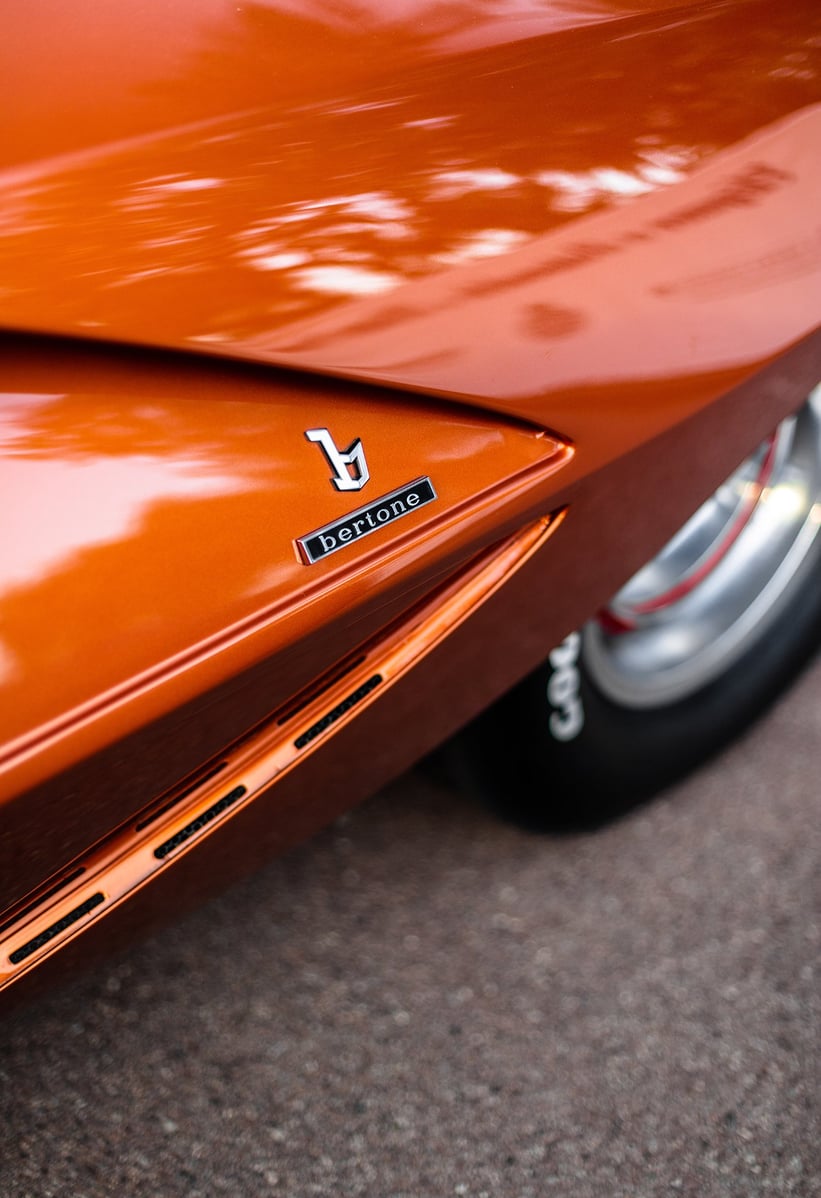
It’s this extraordinary era of automotive design and, perhaps more specifically, the aforementioned images that inspired Paris-based photographer Kevin Van Campenhout to concoct a plan to shoot arguably the most revered concept car of them all, the one-off Lancia Stratos Zero by Bertone, in the rugged hinterland of Monaco.
The unearthly and razor-sharp Stratos Zero, which was famously designed by Marcello Gandini in secret and captured the world’s imagination following its debut at the 1970 Turin Motor Show, is a car that’s kept Van Campenhout up at night for a long time. “I’ve always dreamed about this car,” he told us. “For me, it’s Gandini’s masterpiece and the greatest concept car of them all – a piece of rolling artwork, the enduring critical impact of which every young student of automotive design hopes to replicate.”
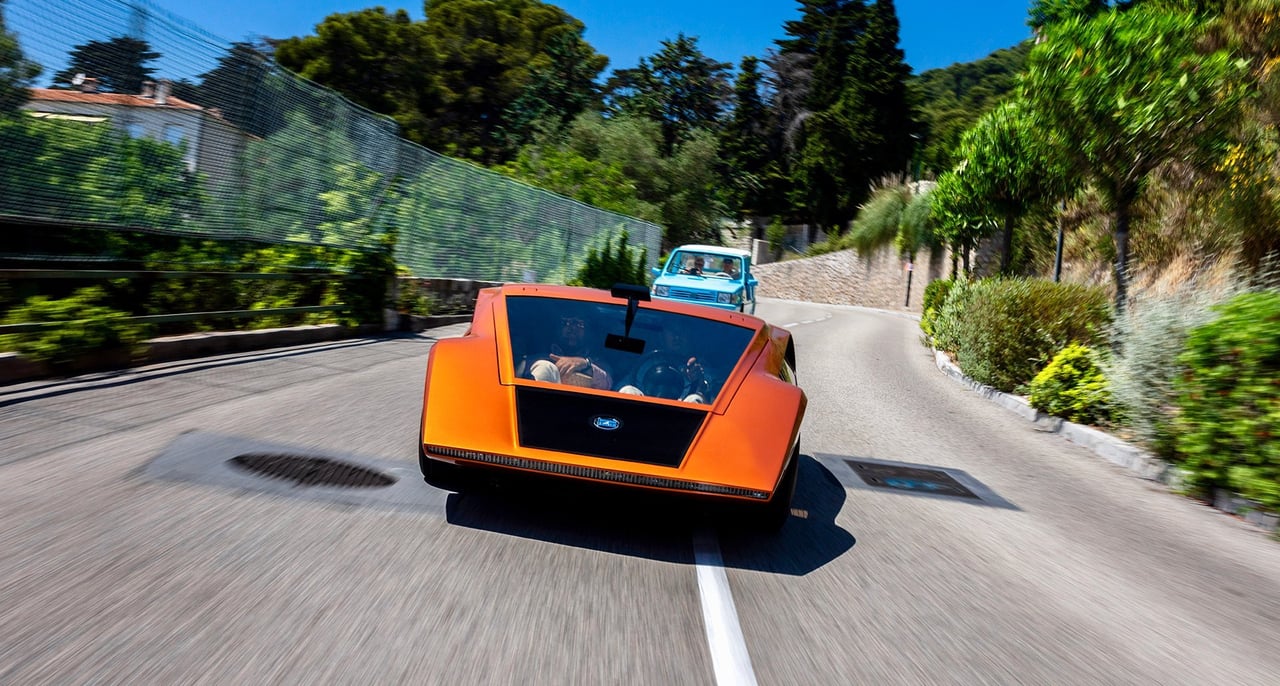
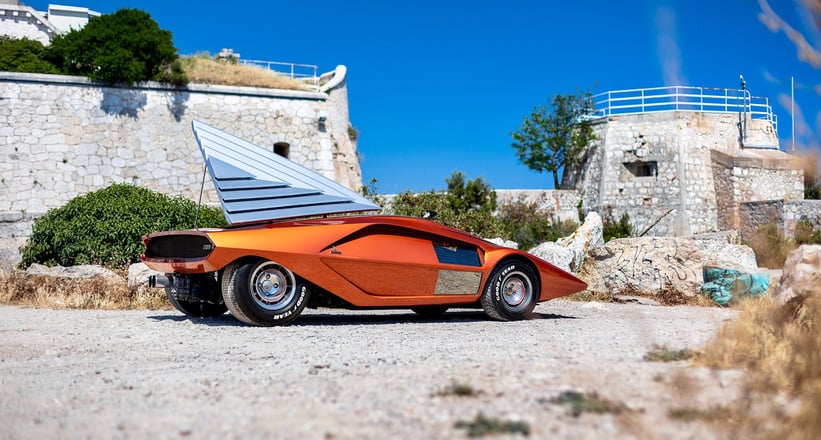

When Van Campenhout learned that the Stratos Zero would be attending the inaugural Elégance et Automobile Monte-Carlo, he immediately spotted an opportunity to capture the car in the same vein as those period promotional photos and make, as he called it, “modern history”. He contacted the car’s owner, the Los Angeles-based collector Phillip Sarofim, who loved the idea.
Perhaps the most remarkable thing about the Stratos Zero is that it’s a fully functioning prototype, powered by Lancia’s compact V4 engine from the Fulvia, mounted amidships. As such, the plan was to make the short hop from Monte-Carlo to a spot Van Campenhout had identified during a break in the car’s busy concours schedule. Alas, it didn’t exactly work out like that and as the weekend progressed, so Van Campenhout’s dreams of shooting the iconoclastic concept slowly faded.


But as the old saying goes, where there’s a will, there’s a way. And with a little help from Camille Guikas of Classic Driver dealer GTC, Van Campenhout was able to capture the Zero from the boot of his rental car as it contested the concours’ tour. Quite fortuitously, the road on which the spectacular dynamic shots were taken passed right by the spot Van Campenhout had originally found. As you can imagine, he was ecstatic.
So were we when we saw the photos. That day, the mercury soared to a sweltering 40deg Celsius in France, so it’s an impressive feat in itself that the hilariously impractical car fared so well on the steep roads above Monaco. We’re not sure the same could be said of its occupants – not only is the Zero essentially a rolling greenhouse, but the ground-scraping cockpit is also particularly snug.


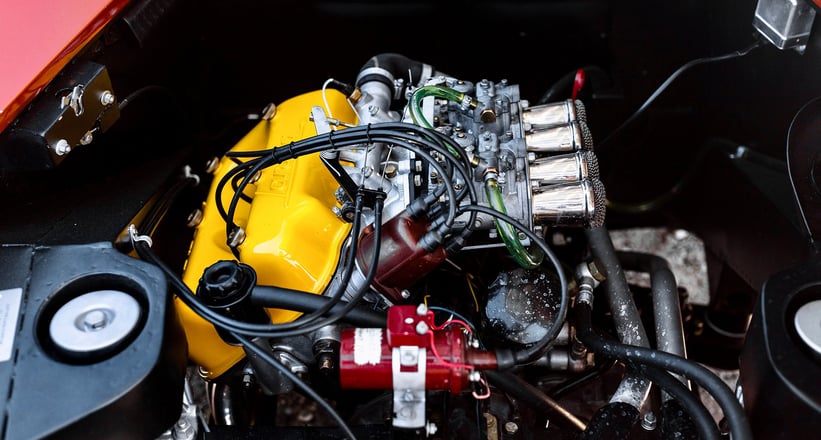
It’s only when you see the Zero out in the wild that you realise how out of this world it really is. On the road, particularly, its height – or lack of – is what sticks out the most. The car is dwarfed by everything else on the road, from bewildered cyclists to giant lorries. Gandini’s aim was to create a car that was as low as feasibly possible and it’s fair to say he achieved that: the Zero is just 33 inches high. To put that into context, Pininfarina’s wild Ferrari Modulo measured a comparatively lofty 37 inches high.
The countless details of this tangerine dream are enchanting and a testament to Gandini’s imagination and brilliance. We love that the front canopy opens forward while the triangular slatted engine cover opens to the side. The distinctive ‘chocolate bar’ seats, which require the car’s occupants to lie almost horizontally, wound up in the Lamborghini Countach, another of Gandini’s cutting-edge designs. And the green-tinted instrument panel to the left of the driver and visible through the Zero’s retractable side windows is positively space age.
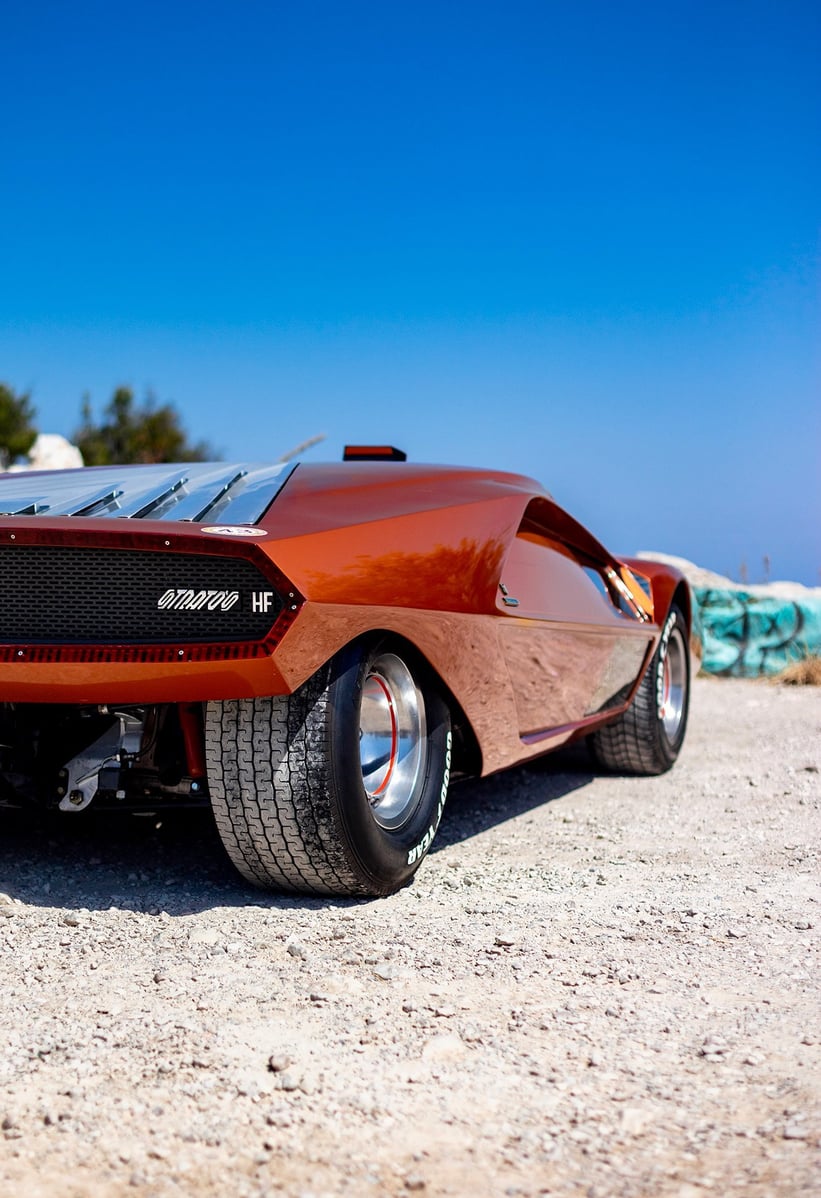
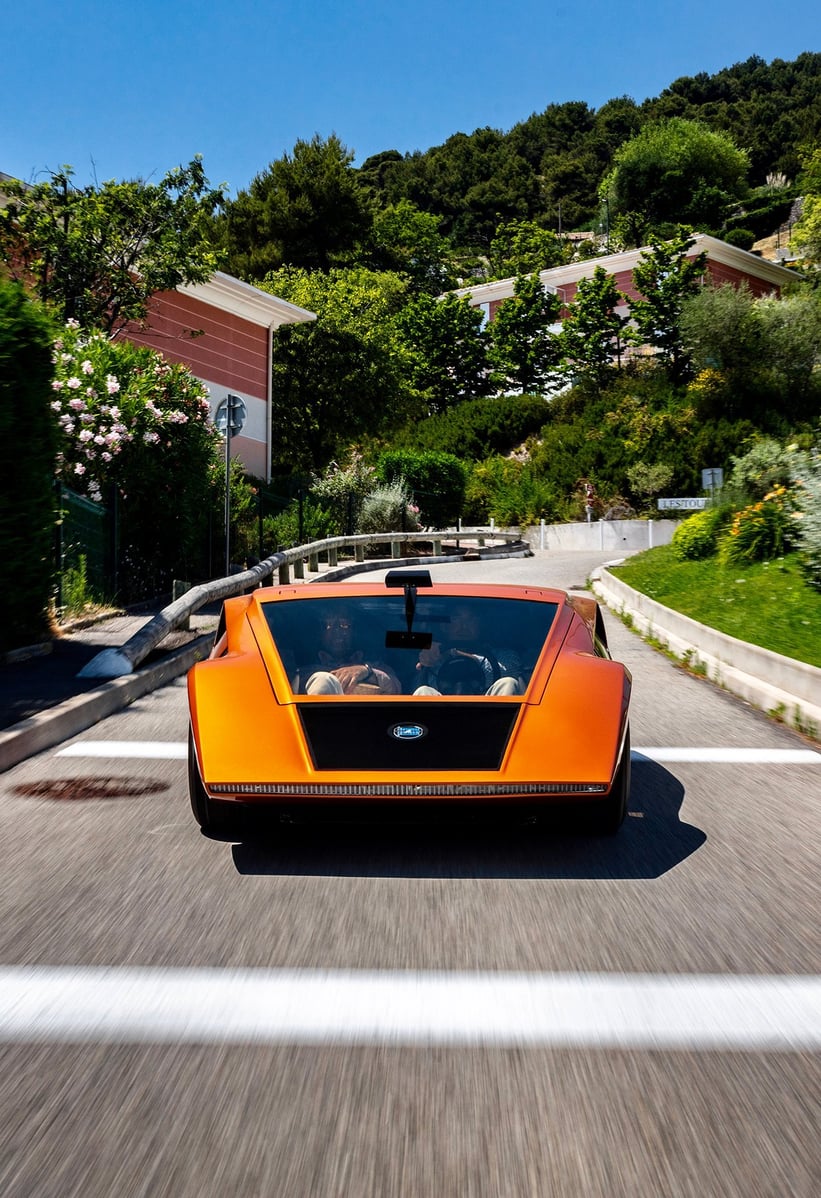
Reflecting on an unforgettable day with the Zero, Van Campenhout is understandably buzzing. “The Stratos Zero not only offers a snapshot of an exciting era of cultural change but also a glimpse of a utopian future that never came,” he comments. “It thus stands as a piece of art that captures the zeitgeist of the early 1970s and achieves exactly what its visionary creator set out to do: get people talking.”
We’ve no doubt that people will be talking about the Zero for many decades to come. And who knows – perhaps they’ll look back on these photos as a modern reference? Way to go, Kevin.
Photos: Kevin Van Campenhout for Classic Driver © 2019
































